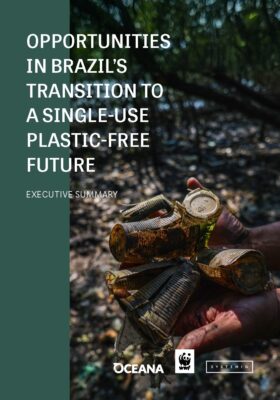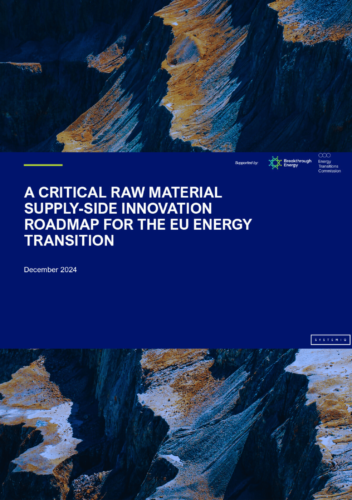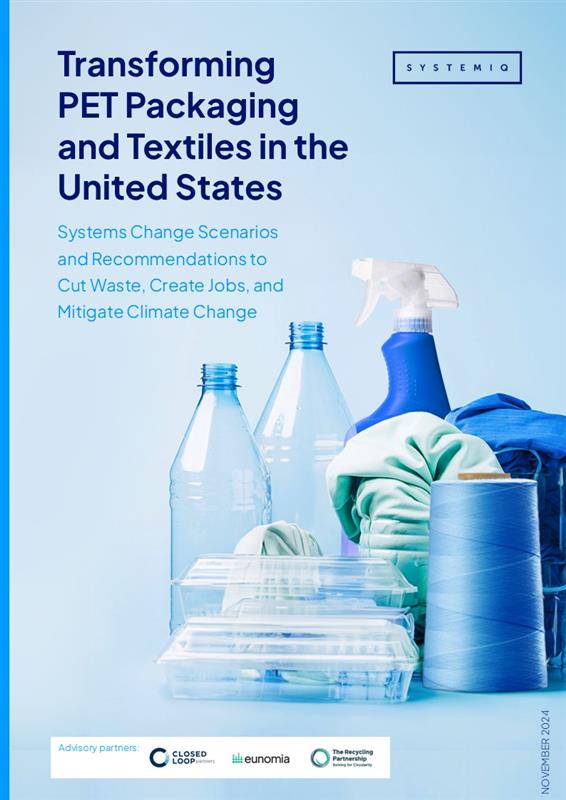This study evaluates the opportunities and socio-economic impacts of phasing out specific single-use plastic products in Brazil, examining both positive and negative outcomes. The analysis compares business-as-usual with alternative scenarios, starting with an assessment of the current socio-economic landscape, including the production of single-use plastics, employment in the sector, and the industry’s economic contributions.
Transitioning from single-use plastics to reusable, recyclable, or compostable alternatives could prevent the generation of 3.2 million tons of solid waste and reduce greenhouse gas emissions by 18 million tons of CO2 equivalent cumulatively between 2025 and 2040.




